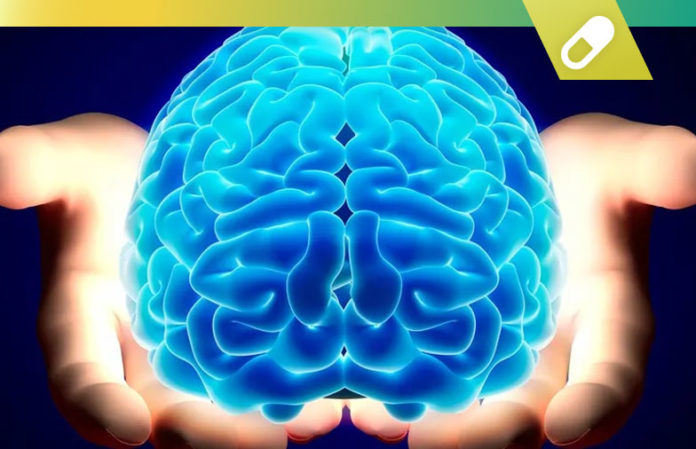Nootropics have recently become popular among students, entrepreneurs and top level CEOs of massive companies, along with many others who wish to increase their daily alertness and cognitive abilities. They have been commonly nicknamed “smart drugs” because they increase are designed to boost brain’s ability to function efficiently. Nootropic smart pills can help you to focus, learn, solve problems, and remember thing better, but not all brain boosting supplements are created by the same standards or sourced with the ideal integrity.
Nootropics were a topic of conversation for years long before they became popular among mainstream supplement users. They may work to provide the benefits that they claim to offer, but they must be taken cautiously, as toying with unregulated cognitive performance enhancers may not be favorable if not researched properly.
From the biohacker health crowd to the late-night coding innovators, to the professional gamer industry or the everyday productivity crowd; nootropics are an emerging market due to the implications of actually stacking ingredients together to create a synergistic entourage effect that could go a long way in feeding the body's brain the right nutrition from the right potent extracts, vitamins and minerals and herbal substances that optimizing cognitive function naturally.
There are many companies who are attempting to capitalize on the current popularity of Nootropics to rake in a profit, and they do so by offering subpar products that don’t work or can even be dangerous. Ever since the “Limitless” movie with Bradley Cooper, many have wondered if there is “natural NZT-48″ supplement to use that could accelerate brain function and provide optimal clarity, memory and focus on sight without side effects.
Let's review the top 10 best nootropic supplements in 2024 and then outline the beneficial effects of cognitive performance boosters as well as map out the side effects associated with too many smart drug pills. To close there is an extensively-research frequently asked questions area where a consumer can find answers to over 25 popular queries about nootropics.
Top 10 Nootropics
Nootropic supplements are “smart drugs” that can be purchased over-the-counter, designed for cognitive enhancement. Generally, nootropics are natural or chemical substances that can improve mood, focus, memory, and concentration. We have reviewed some of the most popular nootropics currently on the market to give you a quick overview of your options.
Contents
OptiMind
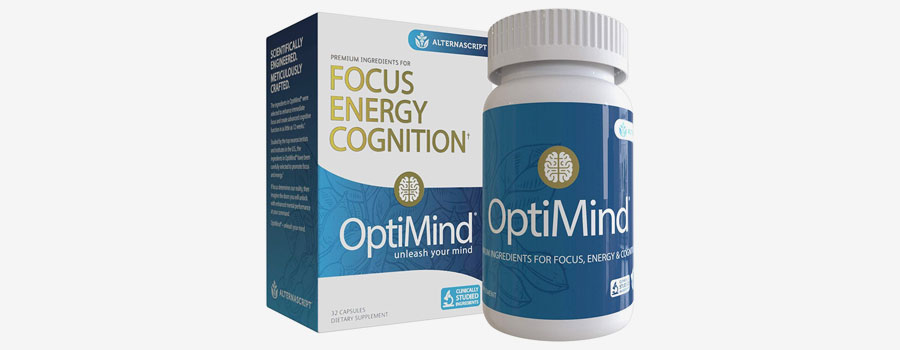
OptiMind is the most well-rounded and balanced of the top nootropic supplements, and it contains a good mix of the most well-proven effective nootropic ingredients. It provides a major dose of vitamin B12 and vitamin D, along with major nootropic supplements and herbal extracts like vinpocetine, ALA, bacopa extract, and L-tyrosine.
With the best ingredients available in the right doses, and without any added ingredients that get in the way, OptiMind is definitely the best overall nootropic on this list. They also just released an OptiMind water booster where it enhances the liquid you drink with easy on the go stick packs.
Alpha Brain

Alpha Brain is am effective nootropic that gained popularity after it was endorsed by Joe Rogan, a famous comedian who knows a thing or two about staying at your mental best for his various roles, stand-up performances, and podcast.
Alpha Brain was the focus of a clinical trial in 2016 that was performed by researchers at the Boston Center for Memory and published in 2016 in a peer-reviewed scientific journal. The ingredients that are used to create this supplement give it a particular ability to improve your verbal skills, so if you are reading or writing a lot, this may be the right choice for you.
TruBrain
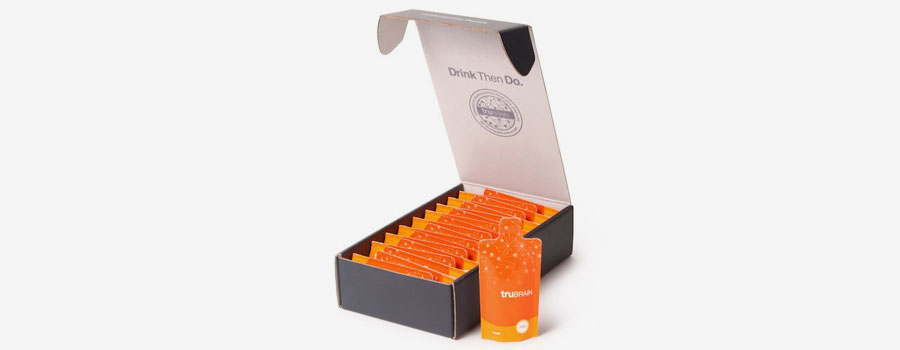
TruBrain is designed to help make sure your brain has all of the building blocks that it needs to be healthy and focuses less on actual nootropic ingredients to boost it beyond regular performance levels. It contains caffeine, magnesium, and amino acids which are all put to use when the brain needs fuel.
While all of these ingredients are beneficial to your brain’s health and function, it doesn’t really qualify as a nootropic compared to other products that are available.
Ciltep

Most of the top-rated nootropics use the same short list of ingredients, but Clitep went a little off the reservation when they developed their ingredients list. They include less conventional options like forskolin and artichoke extract, which are not usually found
These ingredients don’t have much research investigating how effective they might be in enhancing cognitive abilities, and they are far from being proven effective. If you’re adventurous or more common ingredients are really working for you, this may be worth a shot.
NeuroFit

NeuroFit is a nootropic supplement that includes a ton of vitamins and minerals, possibly to make itself look more effective than it really is. They use a proprietary formula to hide the exact amount of actual nootropics within the product, and with such a long list of active ingredients, it is unlikely that there is a sufficient dose of the ingredients that really matter.
Brain Boost
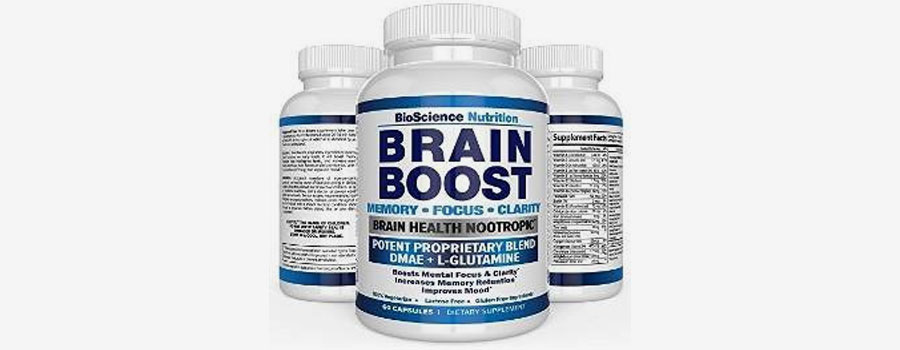
Brain Boost markets itself as a nootropic, but it’s really just a multivitamin with a few extra additives. It contains herbal extracts that are known to enhance some of the biological processes that affect your cognitive abilities. The product’s purpose is to help your body function at its best possible level overall.
All of the nootropic ingredients are wrapped up in a proprietary blend, so there is no way to know if they include enough to actually provide you with any benefits.
Clarity

Every market has at least one product that tries to include every ingredient they can without any real design or intention behind what is included, and this product definitely qualifies as one of them. Clarity includes a mixed bag of herbal extracts, synthetics, vitamins and minerals.
This ingredient list shows that there really wasn’t any proper design or strategy implemented when the product was created. If you would rather ensure that you cover your bases than commit to one particular nootropic ingredient, this product might appeal to you.
Neuro Spark

Neuro Spark puts a lot of faith in some of the older herbal extracts like ginkgo biloba and St. John’s wort, but not so much that they don’t include other ingredients. It also contains many of the newer ingredients that are more common in today’s nootropics, like huperzine-A, bacopa monnieri, and vinpocetine.
It’s a pretty well-rounded option and doesn’t include any stimulants, which is a plus. It’s an effective option for improving your cognitive performance and for increasing your ability to perform mentally demanding tasks.
Neuro-Peak

Neuro-Peak is made by Zhou Nutrition, and it is easily one of the most popular nootropics on the market. It provides users with a bunch of different herbal extracts and a huge serving of vitamin B12. The ingredient that stands out the most in Neuro-Peak is rhodiola rosea extract, which is an herbal extract that has shown some promise in warding against cognitive fatigue.
If you are someone who needs your nootropic to stick with you for the long haul because you do a lot of mentally challenging or tedious work for long hours, Neuro-Peak may be just what you need.
NeuroIgnite

One of the first things the stands out about NeuroIgnite is that it does not make use of a proprietary formula. Instead, all of the ingredients are listed on the label alongside precise amounts per serving. This is a refreshing change from many other supplements and allows the user to have more control over what they put in their body. It also helps you ensure that the active ingredients that matter most are present in high enough quantities to actually do their job.
These active ingredients include DMAE, bacopa monnieri, and ginkgo biloba, all of which are very well-known in the nootropic market and have extensive research backing up their effectiveness.
Nootropic supplements designed as premium cognitive enhancing brain boosters like Mind Lab Pro and Qualia also deserve to be on the list of most popular trending mental performance products.
Benefits And Side Effects of Nootropics
Nootropic supplements were created to improve your cognitive abilities and help your brain function more efficiently when solving problems, recalling memories, and learning new things. Nootropics are widely used among college students to help them study with more focus and retain information more reliably. However, students aren’t the only ones who can benefit from the use of nootropic supplements.
If your job requires you to have any level of mental focus, agility, or endurance (which is to say, if you have a job that isn’t purely physical labor), then nootropics can help you, too. Nootropics are also helpful for aging users who want to keep their minds sharp and stop brain fog from rolling in, so to speak.
Benefits

Many supplements make claims that are fairly difficult to prove from one product to another because of the nature of the benefits they provide, like multivitamins. With supplements like nootropics, it’s much easier to test their actual effectiveness.
Other supplements claim to improve your immune system or promote overall health and well-being, but improving cognitive abilities is a clear and obvious benefit that can be verified by testing a subject’s actually cognitive performance both before and after the use of a given nootropic supplement.
Alternatively, you can test 2 groups of subjects using the same methods while giving 1 group a nootropic and the other a placebo.
The tests that you might use to determine cognitive performance are as numerous as they are dissimilar, and often different nootropics perform well with different types of tests. This shows that different nootropic supplements have the ability to improve different areas of cognitive performance.
Some supplements may improve your memory, while others improve your language skills or decrease the advancement of mental fatigue, which is how much your performance is affected by long, tedious, or mentally challenging tasks. It’s basically your mental endurance.
The above mentioned study of Alpha Brain from 2016 is an excellent case study of the different testing methods to determine the effects of a nootropic supplement. Researcher in this study divided the subjects into 2 groups. The first group was given Alpha Brain and the other was given a placebo. They tested the cognitive abilities of both groups when the study began and then again after they had been taking their provided supplements for 6 weeks.
The varying types of cognitive tests that were used in the study to analyze performance included logical tests, spatial recognition, visual performance, memory, and verbal reasoning. Most of the metrics tested showed little to no improvement, except for the verbal reasoning and verbal memory tests. This is how we know that Alpha Brain is a particularly useful nootropic for those who do a lot of reading and writing.
There have been other tests which studied the potential benefits of individual nootropic supplement ingredients. It’s not a coincidence that the ingredients used most often and in the most popular nootropic supplements are also the ingredients that have the most conclusive scientific research backing them.
One such popular ingredient is an herbal extract known as bacopa monnieri that has been proven to provide very specific benefits to cognitive performance. Psychopharmacology published a study in 2002 which was performed in a very similar manner to the study on Alpha Brain, and which showed promising results.
The study divided healthy adult volunteers into 2 groups, one of which was given a placebo and the other of which was given bacopa monnieri extract in a 300 milligram dose. They were tested at the beginning of the study and were then tested again after a period of 12 weeks. The researchers discovered that bacopa has the ability to significantly improve the ability to learn faster, remember things better, and process visual information more effectively.
Vinpocetine and ginkgo balboa are both effective ingredients that work to improve your short-term memory and speed up recall. This was determined in a study that was published by Human Psychopharmacology, and which used the same method we have described in other studies to test the benefits of vinpocetine and ginkgo balboa for improving cognitive abilities. They discovered that the combination of these 2 supplements could significantly speed up your working memory with as little as 2 weeks of use.
It should be clear by now that selecting the right nootropic supplement for your needs will require you to be very particular about what kind of cognitive benefits you need to achieve. If you’re writing a book, editing sales pages all day, or continuously publishing new articles in an online magazine, Alpha Brain is your best choice to help boost your verbal memory and processing.
If you’re trying to study for a very important test or learn how to do something new, then you would be better off taking bacopa monnieri extract to increase your visual processing and boost your learning speeds. Flash cards are a great tool for studying when you are using this supplement.
If you’re performing a task that is tedious and requires attention to detail over long periods of time, like data entry, then a supplement that combines vinpocetine and ginkgo biloba is your best option.
The point is, when you’re trying to get the absolute best nootropic for what you need, you need to first research exactly what cognitive functions your prospective selections specifically enhance. If you’re doing data entry and the nootropic you are taking improves memory and problem solving, you’re probably not going to see a huge improvement in your productivity.
There are some nootropics that were originally thought to be a possible treatment for aging patients to help slow down the progression of dementia or halt cognitive decline, and many of those supplements that have been proven effective for this purpose are also beneficial for healthy young people, as well.
Huperzine-A is an herbal extract and is 1 of the nootropic ingredients that were found to be effective for this purpose. Research has proven for many years that huperzine-A is a powerful anti-dementia supplement, which was first proven in a study from 1999 that was able to actually reverse dementia in aging monkeys. The study also tested the effects on huperzine-A in younger monkeys and found that it was able to reverse cognitive decline in them as well.
More research is still needed to determine whether or not this supplement can actually increase the cognitive performance of humans, but what has already been discovered is enough to earn it a vote of confidence from many nootropic manufacturers and users.
There are some nootropics available that don’t actually push your brain all that much, and they focus more on providing the necessary nutrients for your brain to repair damage and build itself up to be stronger and perform more effectively. These nootropics contain building blocks like vitamins, minerals, and amino acids that the brain needs to function properly.
These types of nootropics don’t have as much research backing them, and this is mostly because their ingredients are just nutrients that our body gets from food or makes on its own. Using basic building blocks to improve cognitive maintenance isn’t as interesting as finding a magical substance that can make you smarter, but it is effective in its own right when it comes to actually improving the brain’s ability to do its job.
Side Effects
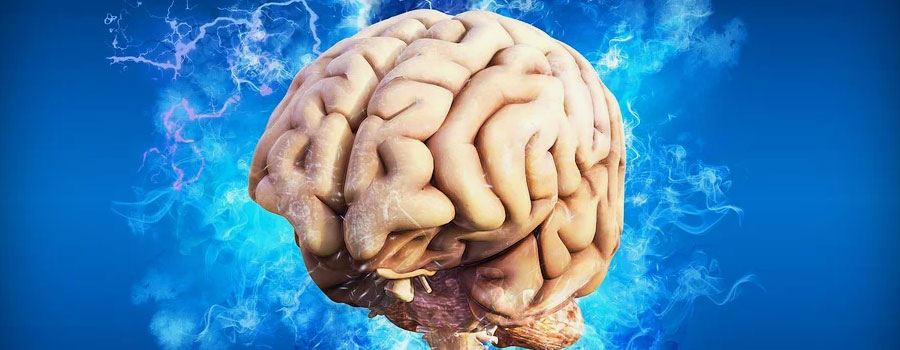
It is only recently that nootropics have become widely used and available, so there isn’t as much information out there about their possible side effects. There have not yet been any reports of serious negative effects caused by any of the active ingredients that most nootropics contain.
Many people are cautious about any substance that is designed to affect their brain, but nootropics seem to be much safer than many other formulated supplements on the market.
There are some nootropics that include caffeine in their formula, and this is 1 exception that should be noted as it does come with some side effects if consumed in large doses. It’s a commonly used stimulant that is very well-known for its ability to improve cognition, but too much of it can cause you to shake or become nauseated.
If the nootropic you are taking includes caffeine, you should note the dose and be careful not to overdo it, especially when including other significant caffeine sources in your diet, like coffee.
You should also be careful not to take such products at night as the caffeine included could make it difficult to fall asleep. Caffeine as an ingredient in nootropics is perfectly safe as long as you don’t take in too much caffeine overall.
Recommended Dosage
Most nootropic doses aren’t laid out as common knowledge beyond the recommended dose listed on the label for the specific product you are taking. There are some supplements which have undergone enough studies to provide scientist with the understanding of their effects that is needed to establish a daily recommended dose for specific ingredients.
Based on the amounts used in studies:
- Ginkgo balboa seems to be effective in doses of about 40 milligrams or more.
- Bacopa monnieri has an effective dose of 300 milligrams.
- An effective dose of vinpocetine should be between 30 milligrams and 60 milligrams. The only research that has been done on vinpocetine was focused on the benefits it could offer dementia patients, so it’s not clear if these amounts would be effective if used for other purposes.
DMAE is another popular nootropic, but the only research that is available focuses on its effectiveness for inducing lucid dreams. The dosage for this purpose is around 100 milligrams, but it’s unclear whether the same dose is effective for use as a nootropic.
It’s obvious that more research is needed to determine the correct recommended dosage for many of the most popular nootropic ingredients, and this is something that we can only hope will become more available over time.
Frequently Asked Questions About Nootropics
The nootropic industry has seen explosive popularity in recent years, meaning that users are more inundated with information now than ever before. Because of this, users likely have a number of questions about nootropics and how they work. This section will provide answers to some of the most commonly asked questions in the nootropic sector.
Q: What are nootropics?
A: Nootropics are drugs, supplements, and other foods, beverages, or substances that may improve cognitive function. Although their effectiveness is still hotly debated within much of the scientific and medical communities, many studies show that some nootropics can be surprisingly effective at increasing the cognitive function of users. The approach taken by nootropics to improve the brain depend heavily on the specific nootropic being used, but all nootropics claim to benefit brain processing in some way or another.
Q: What are the benefits of nootropics?
A: Nootropics enhance cognitive function in different ways. Some nootropics boost memory retention, for example, while others improve focus or attention. Some raise cognitive energy, while others focus on maximizing, creativity, executive function, or other parts of the brain's multi-faceted function in our daily lives. While this plurality of potential benefits is great for the industry, it also means that consumers should conduct due research to determine which nootropics will best help them obtain their brain-oriented goals.
Q: How do nootropics work?
A: Nootropics work by manipulating brain functions to optimize cognitive output. Some nootropics improve blood flow, for example, making it easier for oxygen and nutrients to flow to the brain. Other nootropics raise dopamine levels to enhance motivation. Some affect stress hormones like cortisol, while others stimulate your brain to improve your cognitive energy. Users interested in seeing how their nootropics function specifically should look into the product, especially considering the wide variety of methods used by nootropics to optimize brain benefits for the users.
Q: What is a nootropic stack?
A: A nootropic stack is a combination of two or more nootropic ingredients. Caffeine and L-theanine is a popular nootropic stack, for example. By combining multiple ingredients, producers of nootropics are able to target and maximize specific effects while reducing side effects that may arise from the use of only one of the elements in the stack.
Q: What are the types of nootropics?
A: Nootropics can be separated into different categories. There are vitamins, for example, herbs, plant extracts, synthetic formulas, adaptogens, phospholipids, choline sources, antioxidants, amino acids, stimulants, and more that can all be considered types of nootropics.
Q: What is the history of nootropics?
A: Nootropics have skyrocketed in popularity in recent years. However, they’re far from a new phenomenon. People have been consuming common nootropics, including like caffeine and green tea, for centuries. Several notable nootropics were also developed by the military for use among soldiers. Humans have been trying to improve brain power for centuries. Nootropics are just a modern version of that goal. Modern advancements in medicine and technology have just made it easier for companies to extract ingredients and maximize the purity of their brain-enhancing supplements.
Q: Are nootropics good for you?
A: Nootropic health benefits vary widely. Some nootropics may improve cognition, physical health, and mental health. Other nootropics contain stimulants that could cause adverse side effects. Some people are allergic to certain nootropic ingredients, while others tolerate them well. Users should always consult their physician before beginning use of any new supplement in their routine, especially if they are currently taking medication that could be influenced by the use of a nootropic.
Q: Do nootropics really work?
A: Many nootropics are legitimate. They have been scientifically proven to work in multiple clinical studies. However, the increased popularity of nootropics has led to the creation of many nootropics with high prices and little efficiency. Some may not worked as advertised, and many nootropics might even contain additives with negative side effects. Be sure to read the label carefully and buy only from trusted manufacturers.
Q: Are nootropics natural?
A: Some nootropics are natural. Green tea extract and caffeine, for example, can be found in plenty of nootropic supplements and are clearly natural elements. Other nootropics are synthetic, meaning that they're created in a lab. This is not inherently a bad thing, but users trying to only purchase all-natural supplements should research their product's potentially synthetic components.
Q: Are nootropics legal?
A: Most nootropics legally sold online or offline are legal. In the United States and most other countries, nootropics are classified as legal dietary supplements, just like protein powder or diet pills. Still, global users should conduct their own legal research to ensure they don't violate the law by purchasing and shipping nootropics.
Q: Are nootropics a placebo?
A: Some critics argue that nootropics work because of the placebo effect, which happens when users take a pill with no genuine effects but imagine that they have experienced positive effects anyway. This may be true for some nootropics. However, a number of nootropic ingredients have been noted as positively impacting cognition in multiple peer-reviewed studies, leading many to believe that nootropics are often effective.
Q: Do nootropics have side effects?
A: Like any supplements, nootropics may or may not have side effects. Generally, any legal nootropic contains safe ingredients that have been generally recognized as safe for use in humans. However, side effects vary widely between people. Users should consult with their primary care physician to determine how nootropics might influence them.
Q: Are nootropics safe?
A: Nootropics are generally safe to take, although safety profile varies widely among nootropic ingredients. If you are taking high doses of nootropics and not following the recommended dosage, for example, then you may encounter serious side effects.
Q: Are nootropics addictive?
A: Most legal, natural, stimulant-free nootropics are not addictive when used at the recommended dosages. However, if you are using high doses of synthetic nootropics or buying nootropics from illegal sources, then nootropics may be addictive. Users experiencing signs of addiction after using nootropics regularly should seek the help of a medical professional.
Q: Can nootropics enhance weight loss?
A: Most nootropic studies do not analyze weight loss benefits. However, it’s possible that certain nootropics, including those that enhance dopamine or affect motivation, could encourage you to work out, eat better, and lose weight.
Q: Do nootropics cause anxiety?
A: Certain nootropic ingredients, including caffeine, may cause anxiety. However, some nootropics also have complementary ingredients, such as L-Theanine, that can reduce symptoms of anxiety. Generally, a nootropic should not cause anxiety, although your experience may vary.
Q: Are nootropics vegan?
A: Most ingredients in nootropics are vegan. They come from either plant sources or a lab. However, some nootropics are packaged in gelatin capsules, and gelatin is derived from pork, which means gelatin nootropics are not vegan. Look for nootropics that use vegetable cellulose capsules or similar vegan capsules.
Q: Are nootropics approved by the FDA?
A: Like other supplements, nootropics do not require approval by the FDA to be legally sold in the United States. The FDA has neither approved of nor banned nootropics. Consequently, users should be careful to evaluate the ingredients and reviews of products in this market themselves.
Q: When should nootropics be taken?
A: Generally, it’s best to take nootropics in the morning before lunch. This helps to energize the user for a day of work, school, or travel. Additionally, some nootropics contain caffeine, which means consumers should probably avoid taking them at night.
Q: Can I drink alcohol while taking nootropics?
A: Alcohol should not negatively interact with most nootropics. However, it is wise to check the specific ingredients of a given nootropic to verify that these compounds will not increase the effects of alcohol or present new risks if used in-conjunction with alcoholic beverages.
Q: Do nootropics help you sleep?
A: Some nootropics are stimulants and will likely be an obstacle to sleep. Other nootropics are specifically designed for sleep. Nootropics with L-theanine, for example, can raise levels of GABA, which could improve sleep. Some nootropics are designed to consolidate memories in your brain overnight.
Q: Are nootropics psychoactive?
A: nootropics are not psychoactive. They should not cause effects like hallucinations and paranoia.
Q: Can foods have nootropic benefits?
A: Certain foods enhance brain health. Foods like walnuts, spinach, mushrooms, berries, avocados, and leafy greens, for example, are linked with cognitive benefits. In fact, some natural nootropics include mushrooms or greens within their formula.
Q: Can I give nootropics to my pet?
A: Nootropics are generally designed for human use, and it’s not recommended that you give nootropics to a pet. If a nootropic is safe for pet use, it likely requires different dosing for animals than for humans. Carefully read the use instructions to ensure that you don't risk your animal's health.
Q: Do I need a prescription for nootropics?
A: You do not need a prescription for most nootropics. Certain cognition enhancing drugs, however, do require a prescription, including Adderall and Ritalin. Most nootropics are available freely and legally over the counter.
Q: Where does the word ‘nootropic’ come from?
A: The word ‘nootropic’ traces its history back to Dr. Corneliu E. Giurgea, a Romanian psychologist and chemist who coined the term in the 1970s. Dr. Giurgea combined the Greek words “vouc” (mind) and “nous” (intelligence) with τρέπειν (to bend or change). In other words, nootropic means “mind and intelligence changing” in Greek.
Final Thoughts
The nootropic industry is a fairly new one, and it was only very recently that it experienced a major boom in market growth. Many people still believe nootropics to be dangerous while others simply think they are a hoax. While more research is needed, it is already clear that these products are indeed safe and effective at enhancing your ability to learn faster, retain memories better, focus for longer, solve problems more easily, understand visual information better, and improve verbal abilities.
Each of these benefits can be achieved from a different nootropic product, so there really is something out there for every situation. Because of this, it is important for you to know why you want a nootropic supplement before you actually start looking for the right one for you.
When you are ready to start looking for the right product to solve your specific problem, you’ll want to select something that contains the best proven ingredients at the right dosages to actually provide you with the results you are looking for.
When you are careful to follow the manufacturer’s instructions and have selected the right product for your specific needs, nootropics are very safe and are a great way to boost your mental power so that you can work smart and be more productive.
As always, be sure to check with your medical doctor before you make any changes or additions to your regular supplement routine. While any high-quality supplement is safe for use, it is always possible that you may have a pre-existing condition that does not react well to the components, are taking another medication that is not safe to take alongside your chosen nootropic supplement, or are even allergic to one of the ingredients.
Your doctor is the person who will know all of your medical information and be able to point out any possible problems before you start taking your supplement.













![Bowflex Max Total: 2024 Fitness Workout Exercise Machine [Review] Bowflex Max Total: 2020 Equipment Review For Complete Upper and Lower Body Workout](https://www.advancedliving.com/wp-content/uploads/2019/12/Bowflex-Max-Total-218x150.jpg)


